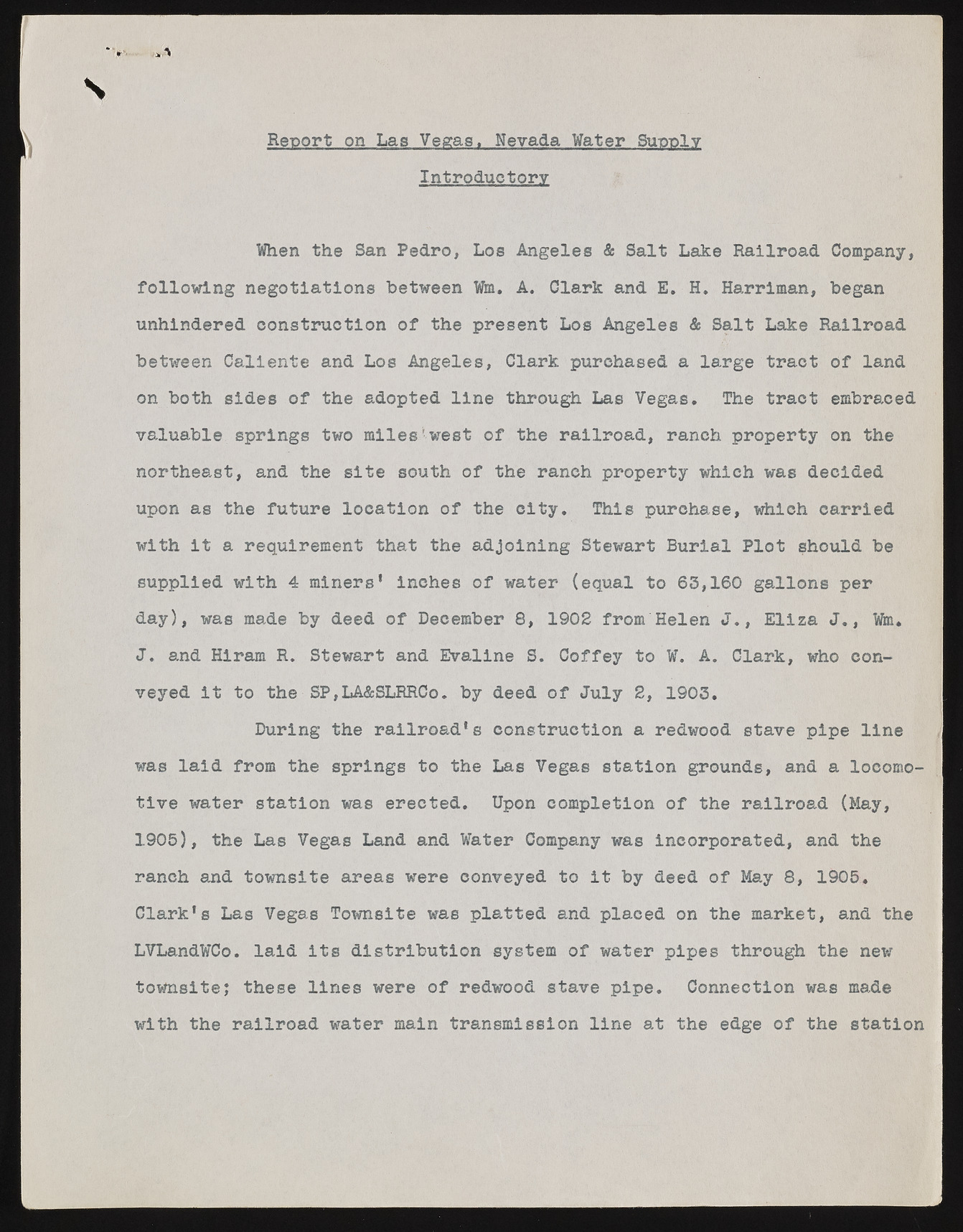Copyright & Fair-use Agreement
UNLV Special Collections provides copies of materials to facilitate private study, scholarship, or research. Material not in the public domain may be used according to fair use of copyrighted materials as defined by copyright law. Please cite us.
Please note that UNLV may not own the copyright to these materials and cannot provide permission to publish or distribute materials when UNLV is not the copyright holder. The user is solely responsible for determining the copyright status of materials and obtaining permission to use material from the copyright holder and for determining whether any permissions relating to any other rights are necessary for the intended use, and for obtaining all required permissions beyond that allowed by fair use.
Read more about our reproduction and use policy.
I agree.Information
Digital ID
Permalink
Details
Member of
More Info
Rights
Digital Provenance
Publisher
Transcription
V1 When the San Pedro, Los Angeles & Salt Lake Railroad Company, following negotiations between Wm. A. Clark and E. H. Harriman, began unhindered construction of the present Los Angeles & Salt Lake Railroad between Callente and Los Angeles, Clark purchased a large tract of land on both sides of the adopted line through Las Vegas. The tract embraced valuable springs two miles'west of the railroad, ranch property on the northeast, and the site south of the ranch property which was decided upon as the future location of the city. This purchase, which carried with it a requirement that the adjoining Stewart Burial Plot should be supplied with 4 miners* inches of water (equal to 63,160 gallons per day), was made by deed of December 8, 1902 from Helen J., Eliza J., Win. J. and Hiram R. Stewart and Evaline S. Coffey to W. A. Clark, who conveyed it to the SP,LA&SLRRCo. by deed of July 2, 1903. During the railroad*s construction a redwood stave pipe line was laid from the springs to the Las Vegas station grounds, and a locomotive water station was erected. Upon completion of the railroad (May, 1905), the Las Vegas Land and Water Company was incorporated, and the ranch and townsite areas were conveyed to it by deed of May 8, 1905. Clark's Las Vegas Townsite was platted and placed on the market, and the LVLandWCo. laid its distribution system of water pipes through the new townsite; these lines were of redwood stave pipe. Connection was made with the railroad water main transmission line at the edge of the station Report on Las Vegas. Nevada Water Supply Introductory

